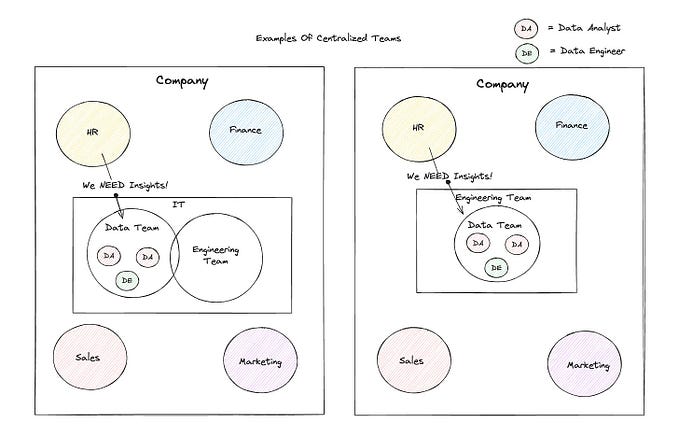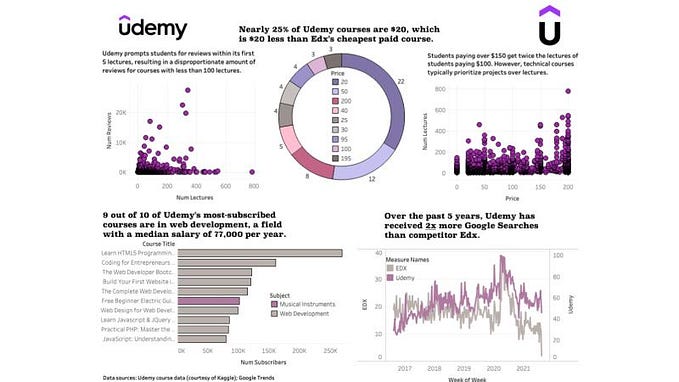With the boom of the internet, people have started producing more and more data. Companies have understood the importance of data and the possible opportunities it brings to the company.
In 2011, Harvard Business labeled the profession Data Scientists as “The sexiest job of the 21st century”
Data is everywhere. Everyone wants to get involved with this power. However, the fruits of this field are so unripe that people tend to misunderstand data jobs, believing people involved with data jobs as some magicians who take data and could potentially implement their product or service.
In this article, we’ll clarify the skepticism built around data jobs, discussing the differences between Data Scientists, Data Engineers, and Data Architect.
There’s even a Difference?
Yes. Although they work together to harness the power of data, they differ from each other in terms of their job roles.
Let’s take a small example to clear this out.
Imagine three people: Ben, Jonny, Cris.
So, Ben comes out with a plan to create a machine where one can put up a raw apple and a processed jam would come out from another end.
He contacts his friend Jonny. Together they work and develop a machine based on Ben’s idea.
Now they want to use the power of the machine to further improve its commercial use. They contact Cris. Now Cris uses the processed jam given by the machine to create a jam sandwich which he sells out and everyone gets the profit.

In layman's words, Ben played the role of Data Architect, Jonny played the role of Data Engineer and Cris was the Data Scientist.

So, How these subfields are different?
- Data Architect

A Data Architect provides the blueprint for data management systems. He’s responsible for understanding the business objective and existing data infrastructure, and then work out a plan for integrating, centralizing, and maintaining all the data, shaping the data architecture or pipelines as per the requirements and standards.
A Data Architect plans a strategy on how to solve a business problem. He may or may not have a technical background.
But he possesses an immense amount of in-depth knowledge of database architecture. He’s also good with Spreadsheets, BI tools, and Extraction Transformation and Load (ETL).
Some of the other important skills he possesses are :
- Business Skill
- Programming Skills
- Data Modelling
- Applied Math’s and Statistics
- Design Skills
- Excellent Communication Skill
- Databases and Cloud Architecture
- Creative and Analytical Problem Solving
- Ability to use a variety of Design/Visualization tools

Check out this amazing article to know more…
- Data Engineer

A Data Engineer develop, construct, test, and maintain architectures.
As a hardcore engineer, they work along with a Data Architect to develop such high-performance data pipelines and work on data reliability, efficiency, and quality.
In short, he deals with gathering the data and process them.
A Data Engineer develops large and manages large databases and creates data pipelines.
So, he generally comes from a technical background and usually has a deep knowledge and expertise in different database software like SQL and NoSQL.
Some of the other important skills he possesses are :
- Data APIs
- Database Systems
- Data warehousing solutions
- Data Modeling and ETL tools
- Knowledge of algorithms and data structures
- Python, Java, and Scala programming language
- Understanding the basics of distributed systems

Check out this amazing article to know more…
- Data Scientist

A Data Scientist uses the pipelines or architectures designed by Data Engineer and tries to extract valuable insights from the data. He’s more mathematically inclined, usually trained in areas like Machine learning, Statistics, and some hardcore domains like Text Analytics(NLP), Computer Vision(CV), etc.
A Data Scientist extracts useful insights from data. He’s an excellent storyteller and can use various data visualization techniques for its good.
Well-versed in maths and statistics, He knows the concepts of predictive modeling and can find out a gold nugget from the sack of data.
Some of the other important skills he possesses are :
- Big Data
- Data Munging
- Analytic Mind
- Data Ingestion
- Data Visualization
- Programming (Python or R)
- Data-Driven Problem Solving
- Tool Box(Hadoop, Spark, MS Excel)
- Machine Learning and Advanced Machine Learning (Deep Learning)

Check out this amazing article to know more…
Closing Remark
Given above is an interpretation of what we have observed while researching at the time of writing this article. We tried to explore some well-known but misunderstood job profiles in the field of data.
Restating, data is everywhere. Every company wants a guy who can bring the potential out of these data that can change the world we are looking at right now. Pursue the field that you love and have a passion for, irrespective of its scope and salary, because, in the end, it’ll bring immense pleasure and satisfaction. And if you’re good with your field, then there will be demand and you’ll grow.






